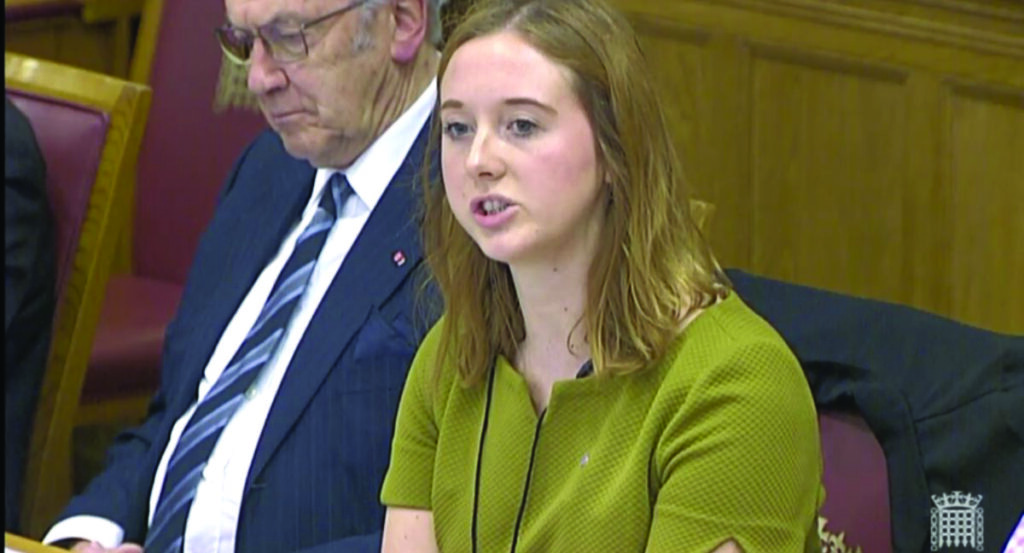The UK farming industry has welcomed a House of Lords report warning of the threat to UK producers of allowing the country to be flooded by low standard food imports.
The report concluded that the Government’s wish for the UK to become a global leader in free trade was ‘not necessarily compatible with its desire to maintain high animal welfare standards’.
As Trade Secretary Liam Fox appears willing to open the door to US imports of products currently barred in the EU, notably chlorine washed chicken, the report has been welcomed by industry representatives, environmentalists and politicians.
NPA senior policy advisor Georgina Crayford, who gave evidence to the inquiry, said: “We welcome the findings of this report, which echoes our concerns and those of the wider farming industry about the dangers of pursuing a cheap food policy.
“The reports surrounding Liam Fox’s stance on US food imports only serve to further highlight the risks to producers and consumers of allowing lower standard food imports under future trade deals with non-EU countries. It is encouraging that the committee urges the Government to maintain high animal welfare standards as part of any free trade agreement.
“As I said to the House of Lords’ Committee, the UK pig sector is hugely proud of its welfare standards. We are absolutely adamant that these must be sustained post-Brexit and that means equivalent standards must be applied to any imports allowed into the country.
“We welcome and reiterate the committee’s recommendation that any moves to ratchet up UK animal welfare standards under a domestic agricultural policy must take into account its impact on UK farm competitiveness.”
“We also share the committee’s concern about the need to ensure the veterinary and food and farming sectors are able to access sufficient levels of EU labour post-Brexit. The UK pig sector is heavily reliant on permanent EU labour and it simply could not exist in its current form if that supply was cut off.”
Commenting on Trade Secretary Liam Fox’s stance on imports of US chicken washed in chlorine, NFU president Meurig Raymond said it was vital ‘any discussions about future trade deals do not serve to allow cheap food imports which undermine the high standards that British farmers are proud to produce food to’.
“The public trusts that this food is world-leading in traceability and safety, from the farm right through to the fork.”
Green MEP Keith Taylor, vice chair of the European Parliament’s Animal Welfare Intergroup, said: “This report is an aptly timed and stark reminder that the pursuit of a free-trade-at-all-costs post-Brexit agenda, as signalled by the Government, is the single greatest threat to the welfare of farm animals in Britain. That Liam Fox only yesterday refused to rule out including agriculture in any future ‘America First’ trade deal with Donald Trump’s US is proof positive that a race to the bottom on animal welfare standards is not simply the ‘worst case scenario’, as highlighted by the report, but, worryingly, the one actually being pursued by the Trade Secretary.”
“Scrapping EU animal welfare standards and forcing UK farmers to compete against cheap, imported food from countries like the US that have significantly lower welfare standards will ensure that almost one billion UK farm animals will be the biggest hard Brexit losers as domestic regulations are weakened and weakened in the name of ‘competitiveness’. Consumers will lose out too, especially those who have no desire to eat unlabelled chlorine-washed chicken, acid-sprayed pigs, hormone-treated beef or be exposed to an array of pesticides and herbicides currently banned in the EU on health and environmental grounds.”
Tim Farron, the former Liberal Democrat leader, said: “Parliament will not back a reduction to food standards as part of the Repeal Bill.
“This is a betrayal of British poultry farmers who currently work to the highest standards in the world. Liam Fox’s dangerous grovelling to the US is only going to see his chickens come home to roost.”
David Bowles, RSPCA head of public affairs said: “Securing the means to ensure that farm animal welfare is as high as possible post-Brexit is such an enormous issue for the farming industry, and the public as consumers. The Report gives some clear recommendations to Government on how to help achieve this. We need to be cautious about claiming high standards of welfare across the board, but there are many example of good practice across the country and these should be supported and strengthened.
Claire Bass, executive director of Humane Society International, said: “Opening up UK markets to products from animals who are raised in lower-welfare systems overseas would be a disaster for consumers, for UK farmers, and of course for animals.
“In order to maintain the UK’s claim as a world leader in animal welfare the government needs to commit that it won’t trade away animal protection measures in post-Brexit trade deals.”




